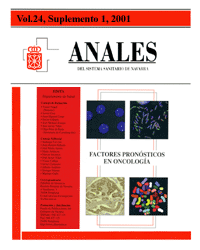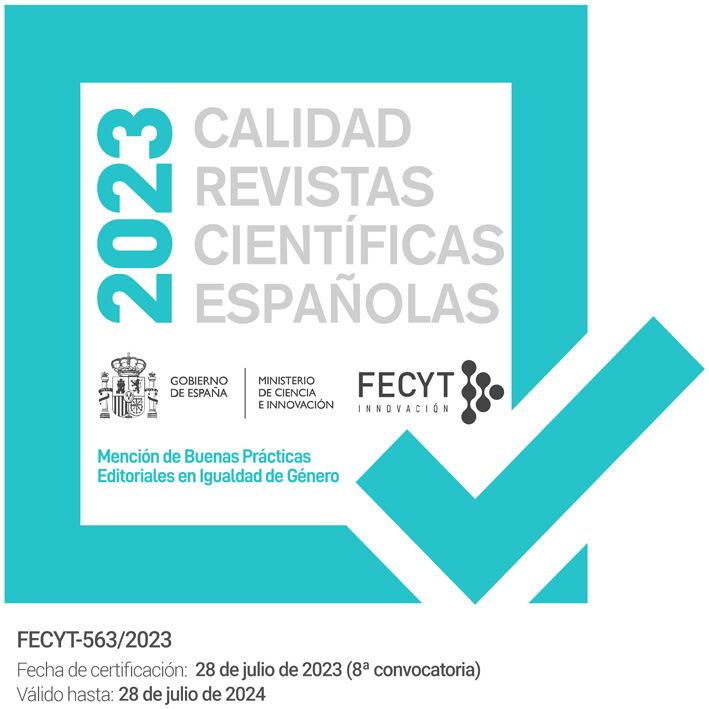Prognostic factors of gastric carcinoma
DOI:
https://doi.org/10.23938/ASSN.0438Keywords:
Estómago. Cáncer gástrico. Factores pronósticos.Abstract
Gastric carcinoma is the second most common cancer in the world. Adenocarcinoma of the stomach has a rate of incidence of 21% in men and 9% in women in Navarra and represents the fifth most common. The incidence of gastric cancer has decreased during the last decades. Although the causes of this decline are unknown, adenocarcinoma of the stomach appears to be related to the environment factors. Several specific patiens conditions appear to be associated with an increased risk of gastric cancer: age, socio-economic status and the weight loss. Multiple factors associated with the tumor include histologic type, tumor invasion of the gastric wall, lymph nodes involvement, tumor markers (CEA; Ca 19.9...), biologic factors as gen p53 mutations, the urokynase-type plasminogen activator system and the angiogenesis. Another prognostic factors have been correlated with the type treatment: total or subtotal gastrectomy, the extent of lymphadenectomy or the adjuvant treatment with chemoradiation. Although the majority of patients are diagnosed at a locally advanced or metastasis disease, the identification of prognostic factors has attracted particular interest to select different treatment modalities in an attempt to increase tumor response and survival.Downloads
Downloads
Published
How to Cite
Issue
Section
License
La revista Anales del Sistema Sanitario de Navarra es publicada por el Departamento de Salud del Gobierno de Navarra (España), quien conserva los derechos patrimoniales (copyright ) sobre el artículo publicado y favorece y permite la difusión del mismo bajo licencia Creative Commons Reconocimiento-CompartirIgual 4.0 Internacional (CC BY-SA 4.0). Esta licencia permite copiar, usar, difundir, transmitir y exponer públicamente el artículo, siempre que siempre que se cite la autoría y la publicación inicial en Anales del Sistema Sanitario de Navarra, y se distinga la existencia de esta licencia de uso.








